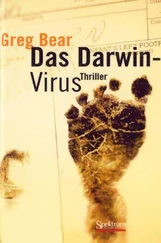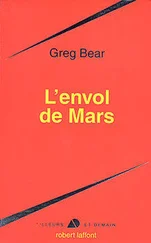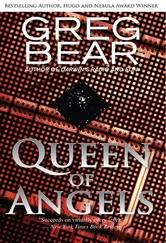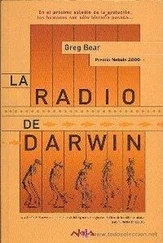Vergil swallowed hard. His face was still plum red. He could feel the blood thudding in his ears, the sick sensation of stress-caused dizziness. He sneezed twice.
“Well, I’ll lay the implications out for you. You are very close to getting your ass canned and sold for bully beef.”
Vergil raised his eyebrows reflexively.
“You’re important to the MABs project. If you weren’t, you would be out of here in a flash and I would personally make sure you never work in a private lab again. But Thornton and Rothwild and the others believe we might be able to redeem you. Yes, Vergil. Redeem you. Save you from yourself. I haven’t consulted with Yng on this. It won’t go any further—if you behave.”
He fixed Vergil with a stare from beneath lowered eyebrows. “Stop your extracurricular activities. We’ll keep your file here, but I want all non-MABs experiments terminated and all organisms that have been tampered with destroyed. I’ll personally inspect your lab in two hours. If this hasn’t been done, you’ll be fired. Two hours, Vergil. No exceptions no extensions.”
“Yessir.”
“That’s all.”
Vergil’s dismissal would not have unduly distressed his fellow employees. In his three years at Genetron, he had committed innumerable breaches of lab etiquette. He seldom washed lab glassware and twice had been accused of not wiping up spills of ethidium bromide—a strong mutagen—on lab counters. He was also not terribly cautious about radionucleides.
Most of the people he worked with made no show of humility. They were, after all, top young researchers in a very promising field; many expected to be wealthy and in charge of their own companies in a few years. Vergil didn’t fit any of their patterns, however. He worked quietly and intensively during the day, and then worked overtime at night. He was not sociable, though neither was he unfriendly; he simply ignored most people.
He shared a lab space with Hazel Overton, as meticulous and clean a researcher as could be imagined. Hazel would miss him least of all. Perhaps it was Hazel who had penetrated his file—she was no slouch on the computers and she might have gone looking for something to get him into trouble. But he had no evidence for that, and there was no sense being paranoid.
The lab was dark as Vergil entered. Hazel was performing a fluorescent scan on a gel electrophoresis matrix with a small UV lamp. Vergil switched on the light. She looked up and removed her goggles, prepared to be irritated.
“You’re late,” she said. “And your lab looks like an unmade bed. Vergil, it’s—”
“Kaput,” Vergil finished for her, throwing his smock across a stool.
“You left a bunch of test tubes on the counter in the share lab. I’m afraid they’re ruined.”
“Fuck ’em.”
Hazel’s eyes widened. “My, aren’t you in a mood.”
“I’ve been shut down. I have to dear out all my extracurricular work, give it up, or Harrison will issue my walking papers.”
“That’s rather even-handed of them,” Hazel said, returning to her scan. Harrison had shut down one of her own extracurricular projects the month before. “What did you do?”
“If it’s all the same to you, I’d rather be alone.” Vergil glowered at her from across the counter. “You can finish that in the share lab.”
“I could, but—”
“If you don’t,” Vergil said darkly, “I’ll smear your little piece of agarose across the floor with my wingtips.”
Hazel glared at him for a moment and surmised he wasn’t kidding. She shut off the electrodes, picked up her equipment, and headed for the door. “My condolences,” she said.
“Sure.”
He had to have a plan. Scratching his stubbly chin, he tried to think of some way to cut his losses. He could sacrifice those parts of the experiment that were expendable—the E. coli cultures, for example. He had long since gone beyond them. He had kept them as memorials to his progress, and as a kind of reserve in case work had not gone well in the next steps. The work had gone well, however. It was not complete but it was so close that he could taste success like a cool dean swallow of wine.
Hazel’s side of the lab was neat and tidy. His was a chaos of equipment and containers of chemicals. One of his few concessions to lab safety, a white absorbent mat to catch spills, hung half-off the black counter, one corner pinned by a jar of detergent.
Vergil stood before the white idea board, rubbing his stubbly beard, and stared at the cryptic messages he had scrawled there the day before.
Little engineers. Make the world’s tiniest machines. Better than MABs!
Little surgeons. War with tumors. Computers with hu-capac.
(Computers=“spec” tumor HA!) size of volvox.
Clearly the ravings of a madman, and Hazel would have paid them no attention. Or would she? It was common practice to scribble any wild idea or inspiration or joke on the boards and just be prepared to have it erased by the next hurried genius. Still…
The notes could have aroused the curiosity of someone as smart as Hazel. Especially since his work on the MABs had been delayed.
Obviously, he had not been circumspect.
MABs—Medically Applicable Biochips—were to be the first practical product of the biochip revolution, the incorporation of protein molecular circuitry with silicon electronics. Biochips had been an area of speculation in the literature for years, but Genetron hoped to have the first working samples available for FDA testing and approval within three months.
They faced intense competition. In what was coming to be known as Enzyme Valley—the biochip equivalent of Silicon Valley—at least six companies had set up facilities in and around La Jolla. Some had started out as pharmaceutical manufacturers hoping to cash in on the products of recombinant DNA research. Nudged out of that area by older and more experienced concerns, they had switched to biochip research. Genetron was the first firm established specifically with biochips in mind.
Vergil picked up an eraser and rubbed out the notes slowly. Throughout his life, things had always conspired to frustrate him. Often, he brought disaster on himself—he was honest enough to admit that. But not once had he ever been able to carry something through to completion. Not in his work, not in his private life.
He had never been good at gauging the consequences of his actions.
He removed four thick spiral-bound notebooks from his locked desk drawer and added them to the growing pile of material to be smuggled out of the lab.
He could not destroy all the evidence. He had to save the white blood cell cultures—his special lymphocytes. But where could he keep them—what could he do outside the lab?
Nothing. There was no place he could go. Genetron had all the equipment he needed, and it would take months to establish another lab. During that time, all his work would literally disintegrate.
Vergil passed through the lab’s rear door into the interior hall and walked past an emergency shower stall. The incubators were kept in a separate room beyond the share lab. Seven refrigerator-sized gray enameled chests stood along one wall, electronic monitors silently and efficiently keeping track of temperatures and CO 2partial pressure in each unit. In the far corner, amid older incubators of all shapes and sizes (gleaned from lab bankruptcy sales), stood a buffed stainless steel and white enamel Forma Scientific model with his name and “Sole Use” scribbled on a piece of surgical tape affixed to the door. He opened the door and removed a rack of culture dishes.
Bacteria in each dish had developed uncharacteristic colonies—blobs of orange and green which resembled aerial maps of Paris or Washington D.C. Lines radiated from dusters and divided the colonies into sections, each section having its own peculiar texture and—so Vergil surmised—function. Since each bacterium in the cultures had the potential intellectual capacity of a mouse, it was quite possible the cultures had turned into simple societies and the societies had developed functional divisions. He hadn’t been keeping track lately, involved as he had been with altered B-cell Lymphocytes.
Читать дальше












